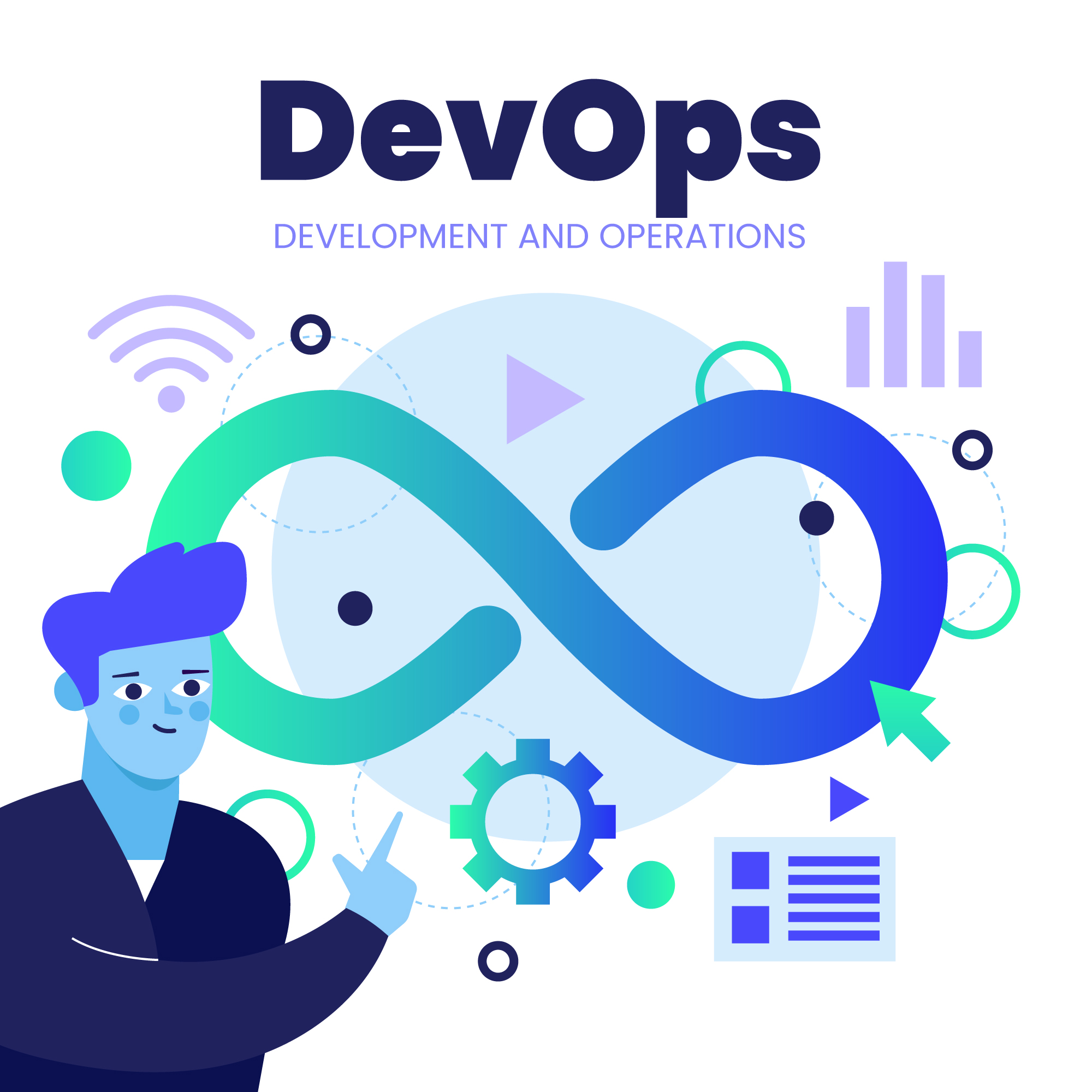Karwisoft
Services
Have Any Problem? Please, Contact

DevOps Solutions
DevOps tools and practices emphasize collaboration, automation, and integration across development and operations teams to achieve continuous delivery and operational excellence. Configuration Management tools like Ansible and Chef automate the setup and maintenance of servers and infrastructure components, ensuring consistency and reducing manual errors. Version control systems such as Git enable teams to track changes in codebase efficiently, facilitating collaboration and version management. Agile methodologies, integrated with DevOps practices, promote iterative development and quick feedback loops, enabling teams to respond swiftly to changing market demands. DevOps also advocates for cultural practices like blameless post-mortems and cross-functional team collaboration, fostering a culture of continuous improvement and learning within organizations
Why DevOps?
DevOps enables faster delivery, scalability, and reliability of software systems.Benefits of DevOps
Improved collaboration, increased efficiency, and reduced risk of deployment failures.DevOps Tools and Practices
DevOps encompasses a wide array of tools and practices aimed at enhancing collaboration and efficiency between software development and IT operations teams. Tools such as Docker and Kubernetes facilitate containerization and orchestration, enabling seamless deployment and scalability of applications. Infrastructure as Code (IaC) practices, supported by tools like Terraform and AWS CloudFormation, automate the provisioning and management of infrastructure, ensuring consistency and reliability across environments. Continuous Integration (CI) and Continuous Deployment (CD) pipelines, powered by Jenkins or GitLab CI/CD, automate testing and deployment processes, accelerating the delivery of new features and updates. Monitoring and logging tools such as Prometheus and ELK Stack provide real-time insights into application performance and system health, enabling proactive troubleshooting and optimization.
Continuous Integration
Automated testing and integration to deliver code changes more frequently.
Continuous Deployment
Automated deployment of code changes to production environments.
Infrastructure as Code
Automate infrastructure provisioning using code and version control.
